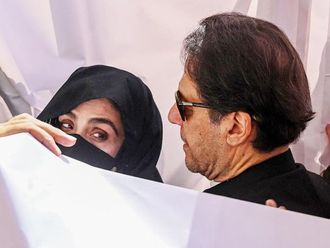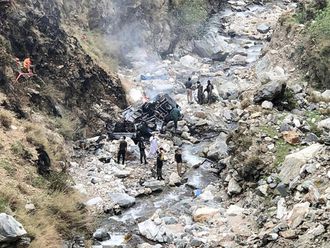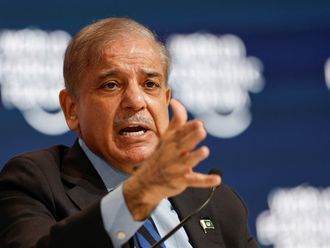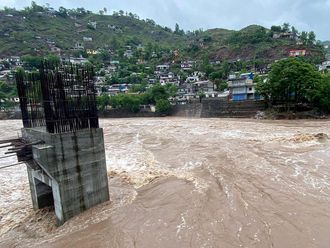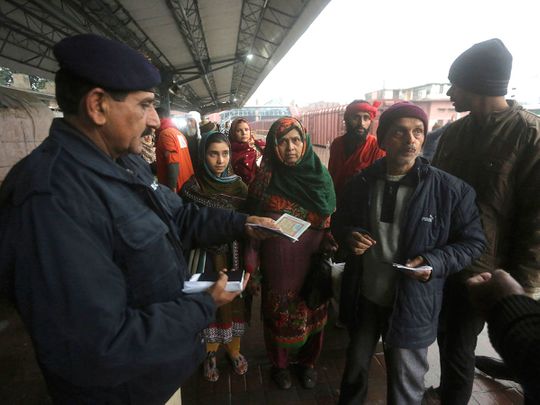
Islamabad: Pakistan is “hoping for the best, but ready for the worst”, its military said on Friday, while dispelling speculation that the country is preparing for war with neighbouring India.
“We do not wish to go to war but, if it is imposed on us, as a sovereign and capable country, we have a right to respond,” said Maj Gen Asif Gafoor, director-general of the Inter-Services Public Relations (ISPR).
The armed forces’ chief spokesperson said this while addressing journalists at General Headquarters Rawalpindi, amid tensions between Pakistan and India, following the Pulwama attack.
The army statement comes two days after Pakistan Prime Minister Imran Khan offered full cooperation to India to investigate the attack, while also calling for peace talks on Kashmir and terrorism-related issues.
But on the contrary, the military spokesperson said, “there is war-mongering across the border [in India], hype by the media and [provocative] statements by responsible leadership,” in which case Pakistan has a “right to prepare for defence and respond” to the aggression.
If India initiates any aggression, he warned: “First you [India] will never be able to surprise us. But let me assure you, we will surprise you.”
However, he added that Pakistan does not wish to go to war because, “We know the importance of peace and the price Pakistan has paid during war against terrorism to achieve peace.”
_resources1_16a4a1674ad_author.jpg)
We do not wish to go to war, but if it is imposed on us, as a sovereign and capable country, we have a right to respond.
In the nearly 45-minutes-long media briefing, Gafoor highlighted what he called a pattern of “staged” incidents in India and Indian-administered Kashmir, for which New Delhi always blames Islamabad at a time “when Pakistan moves towards stability or some important event is due to take place”.
He said in December 2001, the Indian parliament attack coincided with the timing of presidential election in India while the 2008 Mumbai attack took place when Pakistan’s “progress on the war on terror was going well” and general elections were due in India”.
Similarly, the 2016 Pathankot and Uri incidents scuttled UN level and diplomatic talks between Pakistan and India.
The Pulwama incident occurred at a crucial time when Pakistan-related eight significant events were under way.
Listing the events, Maj Gen Gafoor said, “Saudi crown prince was visiting, the UNSC discussion was due on terror listing, Afghan peace talks were ongoing, discussions in European Union and the UN were due on human rights abuses in Indian-occupied Kashmir. There was also the Kulbhushan Jadhav hearing in ICJ, the FATF meeting, event on Kartarpur border as well as PSL matches.”
Apart from these events, the election campaign in India is also at its peak.
The army spokesman said Pakistan was moving towards full implementation of its National Action Plan and would continue efforts against terrorism, while committing to regional peace.
Concluding the briefing, the spokesperson echoed a message from army chief General Qamar Bajwa.
“Countries do not, and cannot, develop alone. Regions develop together,” he said adding that Pakistan and India should jointly work for development of the region.
On a separate note, the ISPR director-general confirmed that two military officers were under arrest on espionage charges and the army chief had ordered their court-martial.
PM authorises army to respond decisively
Meanwhile, Pakistan’s Prime Minister Imran Khan on February 21 chaired a key meeting of the National Security Council (NSC) in which he authorised Pakistan’s armed forces of Pakistan “to respond decisively and comprehensively to any aggression or misadventure by India”.
He also said that Pakistan was not involved in any way, means or form in the Pulwama incident, which was conceived and executed internally.
The meeting chaired by Imran was attended by army chief General Qamar Bajwa, services chiefs, heads of intelligence agencies, security officials and key ministers to discuss the country’s security situation.
The already sour relations between the two South Asian neighbours have aggravated over the past week as New Delhi blamed Islamabad for the Pulwama attack, in which 44 Indian paramilitary personnel were killed in Indian-administered Kashmir. Pakistan categorically and immediately denied the allegations.


